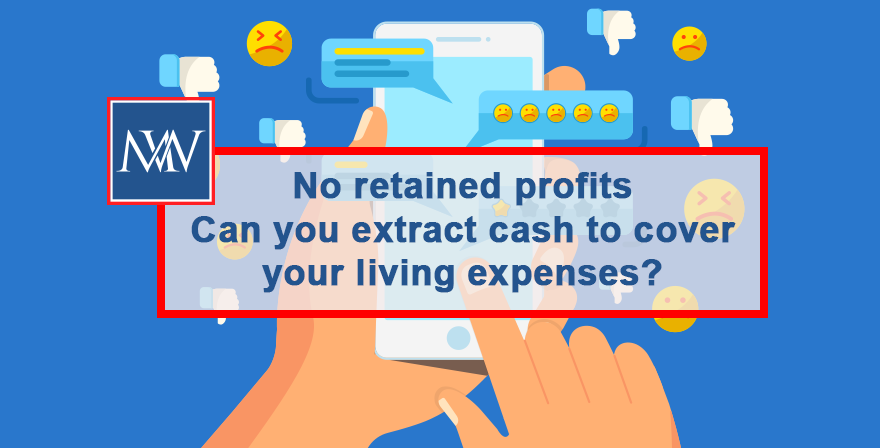
No retained profits – Can you extract cash to cover your living expenses?
No retained profits – Can you extract cash to cover your living expenses?
If you operate through a limited company, for example as a personal or family company, you will need to extract funds from your company in order to use them to meet your personal bills. There are various ways of doing this. However, a popular and tax efficient strategy is to take a small salary which is at least equal to the lower earnings limit (set at £6,240 or 2021/22) to ensure that the year is a qualifying year for state pension and contributory benefits purposes, and to extract further profits as dividends.
However, this strategy requires the company to have sufficient retained profits from which to pay a dividend. If the company has been adversely affected by the Covid-19 pandemic, it may have used up any reserves that it had. As dividends must be paid from retained profits, if there are none, it is not possible to pay a dividend.
Are there other options for extracting funds to meet living expenses?
Pay additional salary or bonus
Unlike a dividend, a salary or bonus can be paid even if doing so creates a loss – it does not have to be paid from profits. However, this will not be tax efficient once the salary exceeds the optimal level due to the National Insurance hit and the higher income tax rates applicable to salary payments.
Take a director’s loan
If it is expected that the company will return to profitability, taking a director’s loan can be an attractive option. Depending when in the accounting period a loan is taken, a director can benefit from a loan of up to £10,000 for up to 21 months free of tax and National Insurance. If the company has returned to profitability within nine months of the year end, a dividend can be declared to clear the loan in time to prevent a section 455 tax charge from arising. If the account is overdrawn at the corporation tax due date nine months and one day after the year end, a section 455 tax charge of 32.5% of the outstanding amount must be paid by the company (although this will be repaid after the corporation tax due date for the accounting period in which the loan balance is cleared).
Put personal bills through the director’s loan account
Another option is for the company to pay the bills on the director’s behalf and to charge them to the director’s loan account. Again, if the company has sufficient profits to clear the outstanding balance within nine months of the year end, a dividend can be declared to prevent a section 455 tax charge from arising. A benefit in kind tax charge (and a Class 1A National Insurance liability on the company) will also arise if the outstanding balance is more than £10,000 at any point in the tax year.
Provide benefits in kind
Use can be made of various tax exemptions, such as those for trivial benefits and mobile phones, to provide certain benefits in kind in a tax-free fashion.
Pay rent
If the company is run from the director’s home, the company can pay rent to the director for the office space. This should be at a commercial rate, and the director will pay tax on the rental income. However, there is no National Insurance to worry about and the rent can be deducted in computing the company’s profits, even if this creates a loss.
As a bonus, if the extraction policy creates a loss, it may be possible to carry the loss back to generate a much-needed tax repayment.
For more information , Book a Free Consultation
Need Accountancy Support?
For information on bespoke training, or if you have any other questions for Makesworth Accountant, please fill in your details below
















 151
151